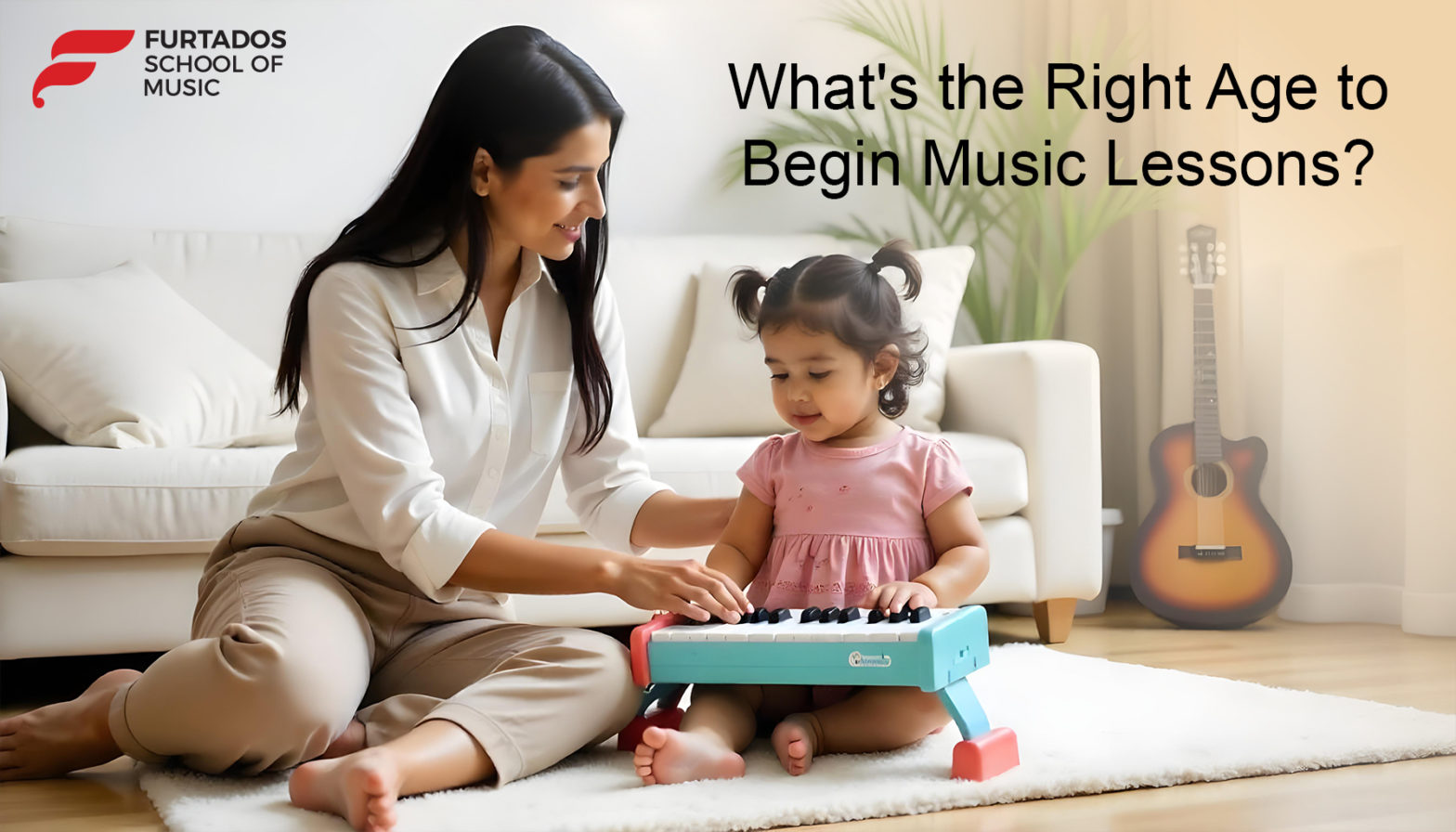Starting music lessons is an exciting milestone for children and parents alike. However, one question often comes up: “What’s the best age to start music lessons?” While there’s no one-size-fits-all answer, the right age depends on the child’s interest, physical development, and the type of instrument they want to learn. Let’s explore how age, readiness, and instrument choice influence the journey of early childhood music education.
Early Childhood: Ages 3-5
For children aged 3-5, music education is often introduced in a playful and informal manner. This stage focuses on the benefits of starting music early, emphasizing rhythm, melody, and basic note recognition through activities like singing, clapping, and moving to music.
Although structured lessons on complex instruments may not be suitable at this age, early exposure to music nurtures creativity and builds foundational skills for future learning. Can toddlers benefit from music classes? Absolutely! Engaging toddlers in music promotes motor skill development, improves auditory abilities, and fosters a love for music that can last a lifetime.
Formal Music Lessons: Ages 5-7
Ages 5-7 are widely considered the for many children. By this time, they typically have improved motor skills, attention spans, and the ability to follow instructions, which are critical for learning an instrument.
At this stage, instruments like the piano or violin are excellent choices. These instruments are adaptable to small hands, making them some of the best instruments for beginners. Children in this age group can also start understanding basic music theory, which enhances their ability to read music and grasp rhythm and melody.
Instrument-Specific Recommendations
Piano
The piano is one of the most popular choices for young beginners. It is often considered the best starting point because of its straightforward layout and adaptability to small hands. Starting piano lessons as early as age 5 helps children develop a strong sense of melody and harmony while also reinforcing foundational music theory concepts.
Violin
The violin is another excellent option for children aged 5-7. Its various size options allow for easy customization to a child’s stature. Violin lessons also emphasize listening and ear training, key components of music and cognitive development in children.
Guitar
Guitar lessons are generally recommended for children aged 7-8, as the instrument requires more physical strength and coordination to press strings and change chords. Starting too early may lead to frustration, so waiting until the child has sufficient hand strength is ideal.
Voice Lessons
Formal voice lessons are typically reserved for children aged 8-10, as younger vocal cords are still developing. However, younger children can still benefit from singing in choirs or informal settings, which builds pitch, rhythm, and confidence.
The Role of Interest and Readiness
While age is an important factor, a child’s interest in music plays an equally vital role in determining when to begin lessons. Some children may show enthusiasm for music as toddlers, while others may develop it later.
If a child demonstrates curiosity about an instrument or music in general, it may be worth starting lessons early, even in a less formal setting. Conversely, if a child finds lessons overwhelming, it’s okay to wait until they’re ready. Tailoring the experience to their developmental stage ensures that they enjoy the process and reap the full benefits of starting music early.
Why Early Childhood Music Education Matters
Research shows that engaging in music during early childhood has a profound Learning music enhances cognitive skills, such as memory, pattern recognition, and problem-solving. It also develops social and emotional abilities like teamwork, patience, and self-expression.
Introducing children to music at a young age helps lay the groundwork for lifelong learning and appreciation. Whether through playful group activities or formal lessons, music fosters creativity, discipline, and confidence—all of which benefit children both in and out of the classroom.
Conclusion
There’s no universal answer to the question of the best age to start music lessons, as it depends on each child’s readiness and interest. Generally, ages 3-5 are ideal for informal exposure to music, while ages 5-7 are great for starting formal lessons with instruments like the piano or violin.
For other instruments, such as the guitar or wind instruments, waiting until the child is slightly older may be beneficial. No matter when a child starts, the focus should always be on nurturing a love for music and creating a positive learning experience.
By choosing age-appropriate lessons and instruments, parents and educators can ensure that children enjoy the journey of music education while reaping its many cognitive, social, and emotional benefits. After all, the joy of music lasts a lifetime!
